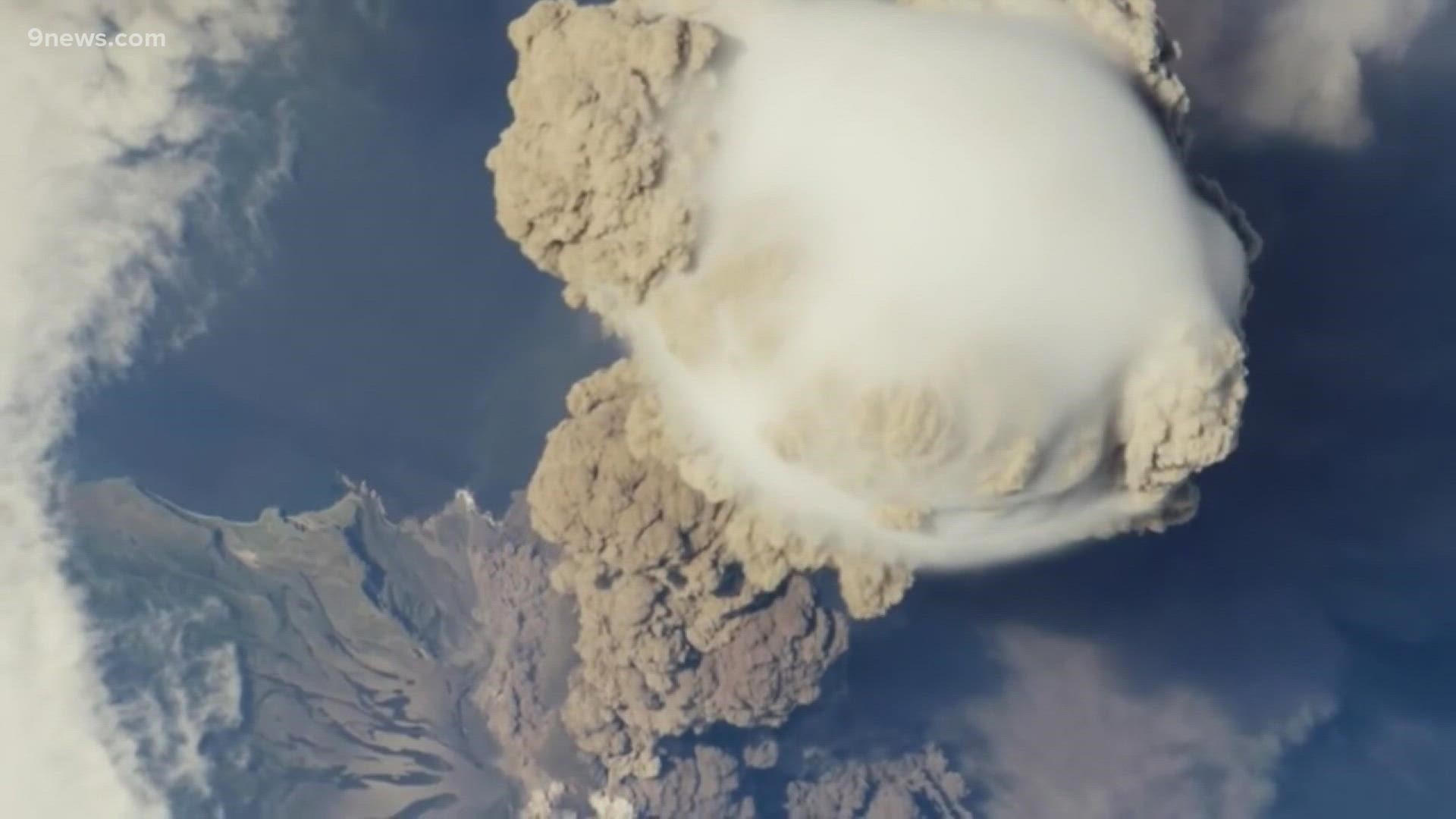BOULDER, Colo. — Weather satellites captured a massive explosion from a volcano known as Hunga Tonga in the south Pacific Ocean on Friday.
It produced a shockwave that traveled all the way around the entire planet.
Part the reason the explosion was so violent is that most of the volcano is underwater.
“A lot of water probably seeped into the magma chamber and vaporized producing huge pressure that blew it apart,” said Brian Toon, a CU Boulder professor and researcher with the Laboratory of Atmospheric and Space Physics.
He said the volcano launched water vapor, ash, and gases up into the atmosphere as high as 18 miles.
Toon studies the impact of volcanic eruptions on the climate. The key gas being emitted is sulfur dioxide. He said when it heats up in the sunlight it changes into droplets called sulfuric acid.
“And these can reflect sunlight back to space - it’s been observed after big eruptions that this happens - and it can cool the earth off,” he said.
Toon said that the Mt. Pinatubo eruption in 1991 cooled the atmosphere by about one degree Fahrenheit for a little more than a year. But this week’s eruption pales in comparison.
“So this particular eruption of Hunga Tonga isn’t even close to being important to the climate in a way that it would be obvious to people,” he said.
He did say that careful measurements will likely show some slight cooling in short term temperature data but nothing significant.
Toon said that history is full of examples where large volcanic eruptions caused periods of cooling. He said in 1816, the Mt. Tambora eruption led to a period known as the 'year without a summer'. Global temperatures fell .4 to .7 degrees C below average.
He said periods of widespread activity could likely have more global cooling impact than a single event. The slight cooling in 2011 and 2012 may have been a result of a period of active volcanic activity starting in 2010.
Volcanoes also emit the greenhouse gas carbon dioxide, which causes warming to the atmosphere. But Toon said it’s minimal compared to other sources.
A NASA study showed the amount of carbon dioxide that came from the Mt. Pinatubo eruption, the largest in over 100 years, is equal to half the amount of carbon dioxide that humans produce every day.
Toon says Hunga Tonga’s concentration would hardly be noticeable.
“No the volcano is nothing of any interest to the carbon dioxide in the atmosphere at the present time,” he said.
SUGGESTED VIDEOS: Colorado Climate

